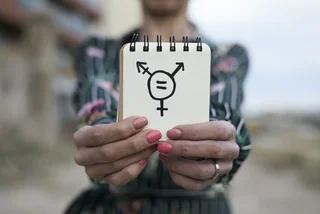In a landmark judgment, the European Court of Human Rights (ECHR) ruled on Thursday that the Czech Republic violated the rights of a non-binary citizen by requiring sterilization as a prerequisite for legal gender recognition.
The case was brought by Taylor H., a Prague-based individual assigned male at birth, who has long identified as non-binary and uses she/her pronouns. Since 2012, she has sought to update her legal gender and personal identification number without undergoing surgical sterilization—a condition long mandated by Czech law. After exhausting all domestic legal options, H. appealed to the Strasbourg-based court.
The ECHR found that the Czech requirement breached Article 8 of the European Convention on Human Rights, which protects the right to private and family life. While the court stopped short of recognizing a legal obligation to accommodate non-binary identities specifically, it ruled that mandating surgery as a condition for legal recognition was a violation of bodily autonomy and human dignity.
The court ordered the Czech state to pay EUR 2,000 in legal costs but did not award the EUR 10,000 H. sought for non-material damages. In its verdict, the court reiterated that sterilization cannot be a requirement for accessing legal gender recognition, echoing similar rulings against other European states in recent years.
Advocates praise the decision
Advocates have welcomed the judgment as a significant step forward for trans and non-binary rights in the Czech Republic, one of the few remaining European countries to maintain such requirements. Viktor Heumann of Trans*parent, a Czech NGO, called the ruling “heartwarming” and urged lawmakers to finally adopt clear, humane legislation for gender recognition.
Although the Czech Constitutional Court struck down the sterilization requirement in 2024, implementation has stalled. A new law was expected by July 2025, but all legislative proposals have since collapsed, leaving the future of gender recognition policy uncertain. The government has indicated it may rely on ministerial guidelines, but activists warn these are non-binding and vulnerable to political shifts.
“This is a great day for non-binary and trans people,” said Taylor H. in a statement. “It sends a powerful message that Europe stands for dignity, equality, and human rights for all.”
International bodies including the European Union, Council of Europe, and World Health Organization advocate for self-determination models of gender recognition, already adopted in countries like Germany, Ireland, and Denmark. The EU Court of Justice recently reaffirmed that no gender recognition process can lawfully require sterilization.
Legal experts and advocacy groups say the ECHR’s decision puts additional pressure on the Czech government to act. “This is fundamentally a rule of law issue,” said Richard Köhler, expert advisor at TGEU. “The Czech government must now align its laws with European legal standards and values.”

